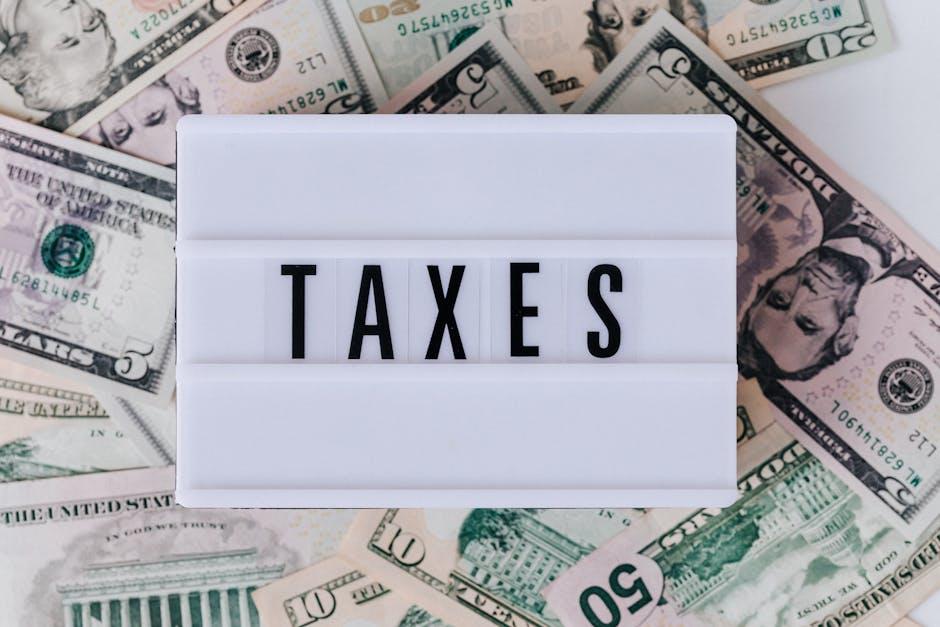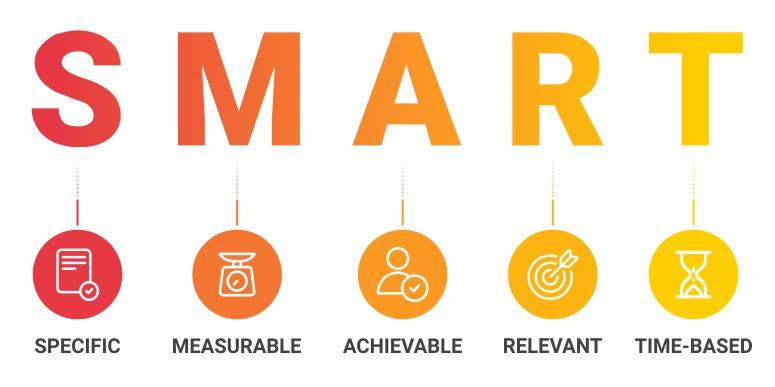Venturing into the wellness industry is an exciting journey filled with the promise of making a positive impact on people’s lives. Whether you’re dreaming of opening a boutique yoga studio, launching a line of organic skincare products, or offering holistic health coaching, there’s one key element that can make or break your entrepreneurial success: financial planning. In this article, we’ll explore the essentials of financial planning tailored specifically for wellness entrepreneurs. We’ll break down the sometimes intimidating numbers game into manageable steps, ensuring that your passion for wellness is backed by a solid financial foundation. Ready to dive in? Let’s get started!
Understanding Your Business Needs
Getting a grasp of what your wellness business really needs is the bedrock of sound financial planning. It’s not just about crunching numbers; it’s about understanding the heartbeat of your enterprise. Start by identifying your primary sources of revenue—such as membership fees, one-on-one sessions, or product sales. Once you know where the money is coming from, you can strategize on how to manage it effectively. Additionally, pinpoint your core expenses like rent, utilities, and payroll. This will give you a clear picture of your financial landscape.
Here’s how to make it easier:
- Revenue Channels: List all your income streams.
- Expense Categories: Catalog your regular outgoings.
- Profit Margins: Calculate the difference.
| Item | Type | Amount (Monthly) |
|---|---|---|
| Membership Fees | Revenue | $2,000 |
| Product Sales | Revenue | $1,000 |
| Rent | Expense | $1,500 |
| Utilities | Expense | $400 |

Creating a Sustainable Budget
As a wellness entrepreneur, having a sustainable budget is key to maintaining a healthy business. Start by tracking all your expenses. This includes rent, utilities, necessary supplies, and even that morning cup of coffee. Use a budgeting tool or an app to categorize these expenses and see where your money is really going. Make it a habit to review your expenditures weekly.
Also, focus on prioritizing your investments. Determine what’s essential for growing your business and what can wait. Here are a few tips:
- Invest in high-quality materials and tools.
- Prioritize spending on marketing initiatives that show a clear return on investment.
- Limit unnecessary personal withdrawals from business funds.
Use the table below to visualize your monthly budget breakdown:
| Category | Budget |
|---|---|
| Rent/Utilities | $500 |
| Supplies | $300 |
| Marketing | $200 |
| Miscellaneous | $100 |

Navigating Taxes and Regulations
One of the trickiest parts of running your own wellness business is staying on top of taxes and regulations. Each country, and sometimes even individual states or regions, has its own set of rules that can be quite overwhelming. To make it easier:
- Keep Regular Records: Maintain thorough records of all costs and income. This makes tax filing much smoother.
- Hire a Pro: Sometimes, it’s worth the investment to hire an accountant or tax advisor familiar with wellness businesses.
- Stay Updated: Tax laws change, so make sure you’re always informed about the latest regulations.
Also, don’t forget about the various licenses and permits you might need. Depending on your location and the specific services you offer, you might need:
- Health Permits: Especially crucial for hands-on therapies and treatments.
- Business Licenses: Necessary for operating legally in your area.
- Certifications: Certain wellness services require certifications from recognized bodies.
| License/Permit | Purpose | Where to Get It |
|---|---|---|
| Health Permit | Ensures sanitary conditions | Local health department |
| Business License | Legal operation of business | City/Town Hall |
| Certification | Proof of qualifications | Professional bodies |

Smart Investment Strategies for Growth
As a wellness entrepreneur, investing can be a powerful way to grow your business and ensure long-term success. Here are some smart strategies you can consider:
- Diversify Your Investments: Don’t put all your eggs in one basket. Consider a mix of stocks, bonds, and real estate to spread risk and increase potential returns.
- Reinvest Profits: Use the earnings from your business to fund new growth opportunities. This could include expanding your product line or entering new markets.
- Leverage Tax-Advantaged Accounts: Take advantage of IRAs or 401(k)s. These accounts can provide tax benefits that help your investments grow more efficiently.
Additionally, keeping track of your investments and constantly adjusting based on performance is vital. Consider reputable financial tools and apps to help:
| Tool | Features |
|---|---|
| Robinhood | Commission-free trading, real-time updates |
| Acorns | Automated investing, round-up savings |
| Personal Capital | Comprehensive financial planning, robust tracking |
Q&A
### Q&A:
Q: Why is financial planning crucial for wellness entrepreneurs?
A: Financial planning is essential for wellness entrepreneurs because it ensures that you can sustain and grow your business while simultaneously planning for your personal financial health. Think of it like keeping your body fit; just as you maintain a proper diet and exercise routine, your business needs a solid financial foundation to thrive.
Q: What’s the first step in creating a financial plan for a wellness business?
A: Start by setting clear, achievable financial goals. These could be anything from breaking even in your first year, saving a specific amount for future investments, or planning for expansion. Having clear targets helps you map out the steps to reach them, just like setting milestones for your clients in their wellness journeys.
Q: How should wellness entrepreneurs manage their cash flow?
A: Cash flow management is all about ensuring that more money is coming into your business than going out. Start by tracking all your income and expenses meticulously. Use accounting software or even a simple spreadsheet to monitor your finances. That way, you can identify any patterns or areas where you might need to cut costs or increase revenue.
Q: Are there any specific financial tools or resources that can help?
A: Absolutely! Tools like QuickBooks, FreshBooks, or free resources like Wave Accounting can be incredibly useful for keeping your finances in check. They help you track expenses, invoice clients, and even prepare for tax season. For more personalized advice, consulting with a financial advisor who understands the wellness industry can be a game-changer.
Q: How should wellness entrepreneurs approach pricing their services?
A: Pricing your services can be tricky but crucial. Start by researching your competitors to see what they’re charging. Consider the value you’re offering, your target market, and your business expenses. Don’t undervalue your services; remember, you’re providing a service that significantly enhances your clients’ quality of life.
Q: What about taxes? Any tips for handling them?
A: Taxes can be a bit of a headache, but they’re a necessary evil. Keep thorough records of all your income and expenses throughout the year to make tax season less daunting. Consider setting aside a portion of your income each month specifically for taxes. If you’re not confident in handling taxes yourself, hiring an accountant can be well worth the investment.
Q: Should wellness entrepreneurs have a retirement plan?
A: Definitely! It’s easy to get caught up in the day-to-day running of your business and forget about the future, but having a retirement plan is crucial. Options like Individual Retirement Accounts (IRAs) or Simplified Employee Pension (SEP) plans can help you save for the future while also offering some tax benefits.
Q: How can wellness entrepreneurs prepare for financial emergencies?
A: Building an emergency fund is key. Aim to save at least three to six months’ worth of living and business expenses. This cushion can help you navigate unexpected downturns, like a slow season or an unforeseen crisis, without significant stress.
Q: What about investments? Should wellness entrepreneurs consider them?
A: Yes, but with caution. Investing can be a great way to grow your wealth, but it’s essential to balance risk with your business needs. Diversify your investments to spread risk and consider talking to a financial advisor to create a strategy that aligns with your long-term goals.
Q: Any final advice for wellness entrepreneurs just starting their financial planning journey?
A: Start small and don’t get overwhelmed. Financial planning is a marathon, not a sprint. Establish good habits early on, like regular budgeting and saving, and seek help when you need it. Over time, these small steps can lead to big financial success, giving you more peace of mind to focus on what you do best: helping others achieve wellness.
To Conclude
As we wrap up our dive into financial planning for wellness entrepreneurs, it’s clear that making sense of your finances can be just as rejuvenating as a good yoga session or a refreshing smoothie. By keeping a close eye on your budget, setting realistic goals, and remaining flexible to changes, you can build a financially healthy foundation that supports your passion and vision.
Remember, every entrepreneur’s journey is unique. Don’t be afraid to consult with financial professionals for personalized advice, and continue learning as you grow. After all, the path to wellness isn’t just about your body and mind but also about feeling secure and confident in your financial future. Here’s to making both your business and bank account thrive!
Thanks for reading, and here’s to your continued success on this exciting journey!


